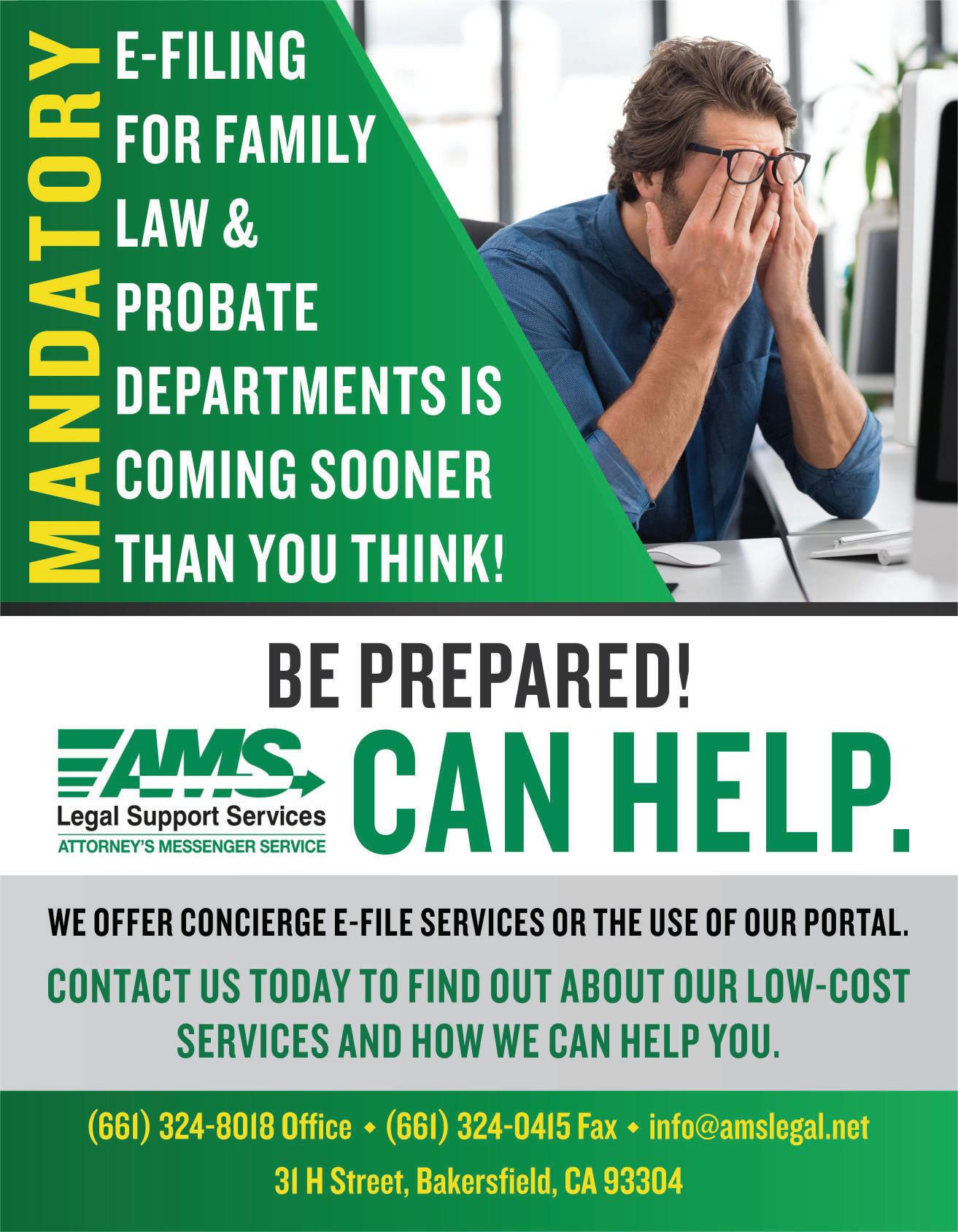22
SAFETY ON THE JOB UNDER COVID-19 by H. Dennis Beaver, Attorney at Law
L
OCAL EMPLOYMENT LAW attorneys Dan Klingenberger and Jay Roselieb answer frequently asked questions in this coronavirus era.
In late March, my column Covid 19 - What Lawyers are Saying featured two Bakersfield Employment Law attorneys, Dan Klingenberger and Jay Rosenlieb, who answered a number of questions about employee rights and obligations in this coronavirus era. That story promoted many readers to send in workplace safety questions, which both lawyers tackle head on: DO WE HAVE A RIGHT TO EMPLOYER PROVIDED GLOVES OR MASKS? “Working at home is not an option in my line of work, as I have to deal with the public. My employer isn’t providing us with gloves or masks: We have to bring our own. Do Employees have a right to be provided with protective equipment on the job?” Rosenlieb: The federal OSHA General Duty Clause requires that an employer provide a workplace free from recognized hazards likely to cause death or serious physical harm, including injury from infectious diseases such as COVID 19. OSHA-approved State Plans have similar, and in some instances, even more protective standards. Employers are obligated to provide their workers with personal protective equipment (PPE) needed to keep them safe. RES IPSA LOQUITUR
It should be noted that the an employee cannot demand PPE that is not deemed appropriate for the exposure. Klingenberger: Guidance from OSHA during the past few weeks recognizes that difference in protection apply to various industries. The OSHA COVID-19 Guidance for Retail Workers provides tips for employers in the retail industry--pharmacies, supermarkets, and big box stores–“to help reduce your employees’ risk of exposure to the coronavirus.” These tips include: “Allow workers to wear masks over their nose and mouth to prevent them from spreading the virus.” OSHA likely chose the word allow rather than require, as this likely reflects several considerations. First, very few masks or face coverings would actually filter out coronavirus. Masks and face coverings primarily serve the purpose of avoiding spread by the person wearing the mask. Assuming that is true, masks, and perhaps gloves, may protect the customers, but would not accomplish the objective of protecting the employee and, therefore, do not have to be PPE. Second, other practices–that we are constantly reminded of–may be far better served to protect employees, such as social distancing, frequent hand washing, not touching your face, and disinfecting work areas. Finally, because of high demand, obtaining masks and gloves for
employees may be very difficult if not impossible. MY EMPLOYER IS NOT TAKING THESE RISKS SERIOUSLY - MAY I SPEAK UP? “The company where I work, doesn’t seem to be taking this crisis seriously enough. There have been no real efforts made to ensure social distancing in the workplace, other than some signs and tape marks on the floor, which are not enforced. It doesn’t feel safe, but I fear retaliation if I speak up. What should I do?” Rosenlieb: An employer is obligated to take such steps as are required by OSHA or an OSHA approved State Plan, not more. If the employer is fully compliant, an employee has little basis to demand further protection. In the event that the employer has policies in place which are not followed, the









